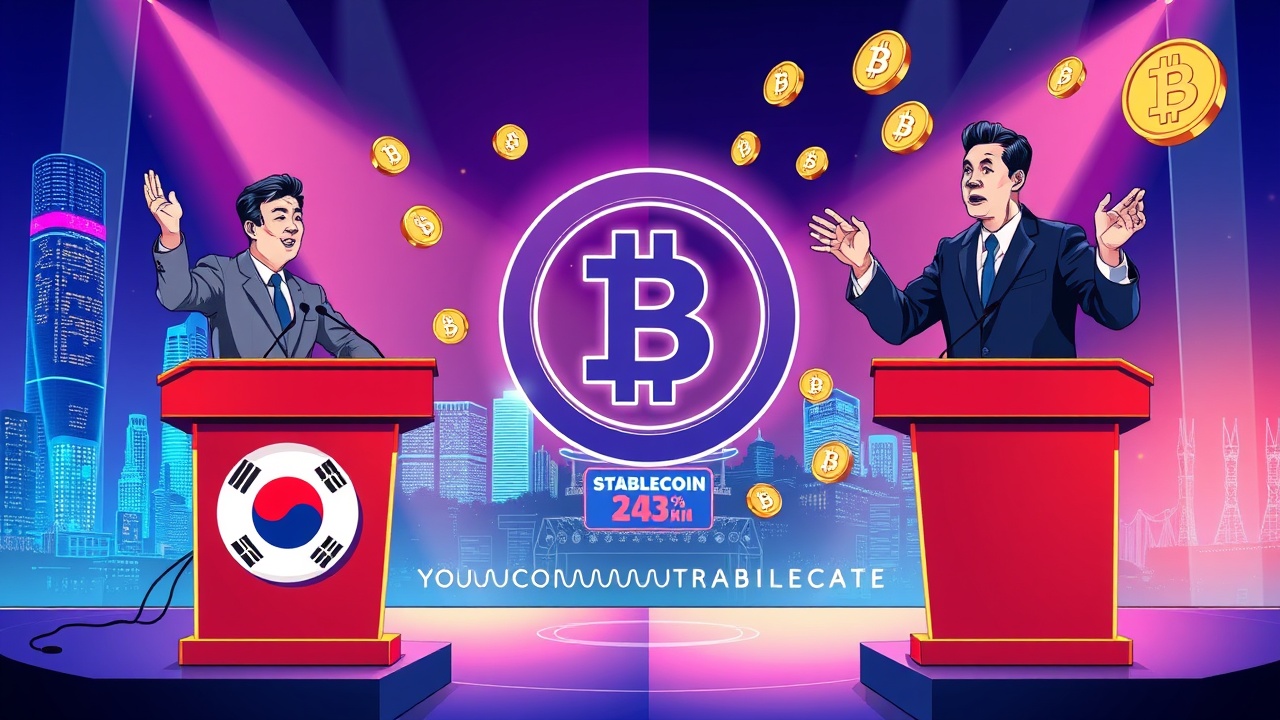The Debate on Stablecoins in South Korea’s Upcoming Elections
As South Korea approaches its upcoming elections, the debate surrounding stablecoins has become a focal point among presidential hopefuls.
Lee Jae-myung’s Vision for a Stablecoin Market
On May 8, Lee Jae-myung, who is currently leading in the polls and represents the Democratic Party, expressed the need for South Korea to establish a stablecoin market backed by the won. He emphasized the urgency for the country to engage with the stablecoin sector, warning that failing to do so could lead to a significant loss of national wealth.
Critique from Lee Jun-seok
In sharp contrast, Lee Jun-seok, the Reform Party candidate, criticized Jae-myung’s proposal, citing the recent struggles experienced by South Korean investors with the KST stablecoin associated with the Terra ecosystem. This collapse in May 2022 saw the stablecoin lose its value, resulting in massive financial losses across the global crypto markets and adversely impacting thousands of South Koreans.
Lee Jun-seok detailed how the fall of Terra’s tokens, including LUNC and KRT, undermined the reliability of stablecoins altogether, thereby questioning the soundness of introducing a new KRW-pegged stablecoin without clarifying its asset backing. He expressed concern that Jae-myung had not adequately addressed how such a coin would mitigate the risks that led to past failures in the crypto market.
Political Background
Adding context to this political divide, Lee Jun-seok is not new to controversies in the political landscape; he previously led the governing People Power Party before establishing the Reform Party after parting ways with them earlier this year. Although the leadership of the PPP has sought to bring him back into the fold, he has resisted these advances as elections loom.
Support for Lee Jae-myung
Supporters of Lee Jae-myung jumped into the dispute, defending his stance on stablecoins. Former Democratic Party lawmaker Kim Byeong-wook argued that the criticisms from Lee Jun-seok reflect a misunderstanding of the global regulatory environment, where regulators worldwide, including those in Washington, Brussels, and Tokyo, deem algorithm-based tokens too unpredictable to be considered stable.
Kim further rebuffed the notion that all stablecoins are inherently risky due to Terra’s failure, asserting that well-structured won-pegged tokens could play a pivotal role in lowering remittance costs and stimulating South Korea’s digital economy.
Electoral Impact and Future Considerations
As the electoral landscape heats up with South Korea’s elections set for June 3, the stakes in this crypto-focused debate are high. Kim Moon-soo, the PPP candidate, has also promised to allow national pension and sovereign wealth funds to invest in cryptocurrencies like Bitcoin, indicating a broader shift towards embracing digital assets within the political discourse.




